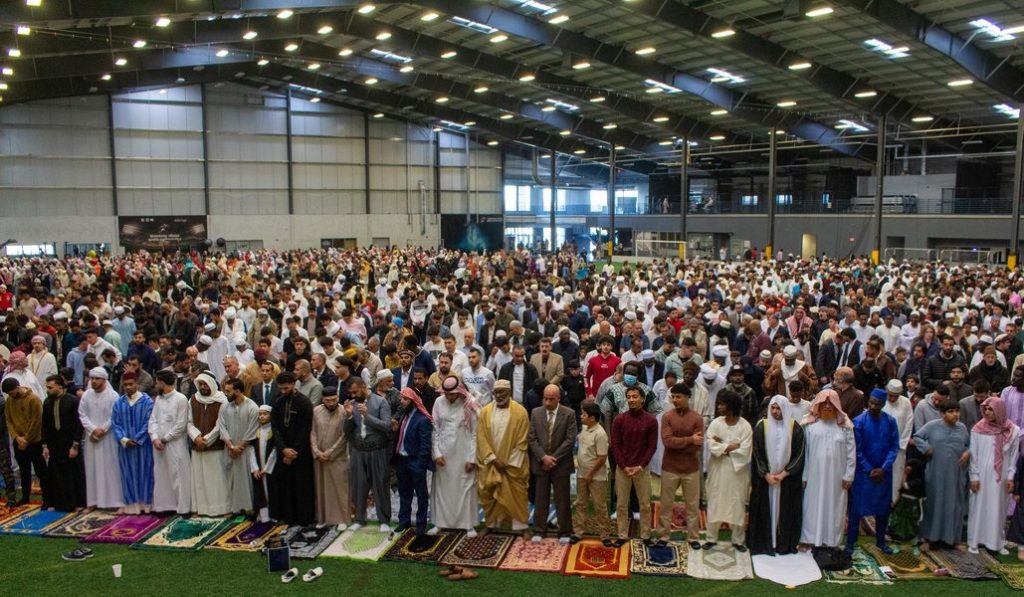Nebraska, known for its wide plains and warm-hearted Midwestern culture, is home to a diverse and steadily expanding Muslim population. Although Muslims make up a small percentage of the state’s total residents, their impact on education, business, and community service is increasingly visible.
Most of Nebraska’s Muslim population resides in Omaha, Lincoln, and Grand Island, where several mosques and Islamic centers serve as hubs for religious and cultural life.
1. Islamic Center of Omaha (ICO)
Located at 13225 Pacific Street, Omaha, the Islamic Center of Omaha is one of the oldest and most active Muslim institutions in the state. Founded in the 1970s, it serves as the spiritual home for thousands of Muslims in the greater Omaha area.
The ICO offers daily and Friday prayers, Quranic education, youth programs, Ramadan iftars, and community outreach initiatives. It also runs a weekend Islamic school and regularly hosts interfaith dialogues to promote understanding between Muslims and non-Muslims.
Omaha’s growing Muslim population includes professionals, students, and refugees from countries such as Somalia, Sudan, Bosnia, and Afghanistan, reflecting the rich diversity of global Islam in Nebraska’s urban heart.
2. Islamic Foundation of Lincoln
At 5400 South 33rd Street, Lincoln, the Islamic Foundation of Lincoln serves the capital’s Muslim residents and the large international student population at the University of Nebraska–Lincoln.
The mosque provides daily salah (prayers), Jumu‘ah services, religious education, and women’s programs, alongside community events that celebrate Islamic holidays like Eid al-Fitr and Eid al-Adha.
It is widely respected for its inclusive atmosphere, welcoming Muslims of all backgrounds, and for its ongoing efforts to engage with local churches, universities, and civic organizations in interfaith activities.
3. Islamic Center of Grand Island
For Muslims living in central Nebraska, the Islamic Center of Grand Island at 1521 N Cleburn Street provides a spiritual and social home. The center offers weekly congregational prayers, youth programs, and charity drives.
It plays an essential role in maintaining religious life for families who live in smaller cities and rural areas far from the state’s larger mosques.
4. Muslim Community and Education in Nebraska
Beyond worship, Nebraska’s Muslims have become an integral part of the state’s social and educational landscape. Muslim student associations at the University of Nebraska–Lincoln (UNL) and Creighton University in Omaha host lectures, cultural events, and volunteer drives that promote civic engagement and cross-cultural learning.
Local Muslim-owned businesses, halal restaurants, and social organizations contribute to a sense of belonging and visibility in communities that once had little exposure to Islam.
A Message of Faith and Integration
The Muslim community in Nebraska continues to thrive through faith, education, and service. From mosques to classrooms, Nebraska’s Muslims embody a shared American story — one of perseverance, respect, and community-building in the heart of the Midwest.

